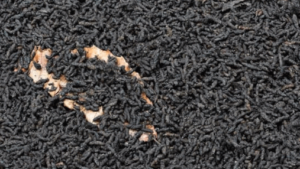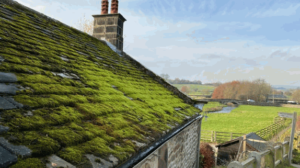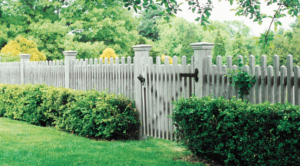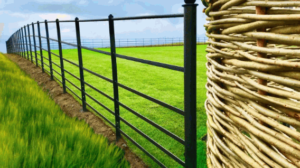Experiencing slow-draining water, foul odors, or backed-up water in your sink or bathtub? These could be signs of a clogged drain, a common household issue.
We will explore what drain cleaning is, why it is necessary, the common causes of clogged drains, signs to look out for, and the various methods of drain cleaning.
Learn more about how much drain cleaning costs and how to address this pesky problem.

What Is Drain Cleaning?
Drain cleaning is a crucial maintenance task handled by professional plumbers ensuring the efficient flow of wastewater through the drainage system.
Keeping drains clean is vital as blocked drains can lead to a host of problems such as foul smells, slow drainage, and even potential health risks due to stagnant water. Professional plumbers have the knowledge and equipment to effectively clear any blockages and ensure that the drains run smoothly. Regular drain cleaning not only prevents immediate problems but also prolongs the lifespan of the drainage system, saving homeowners from expensive repairs in the long term.
Explore further: How To Fix Shower Drain Clog
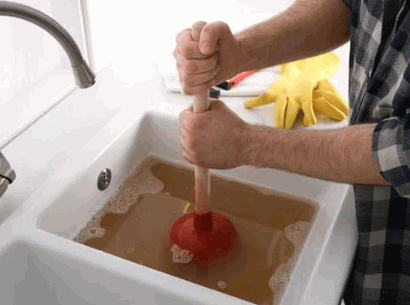
Why Is Drain Cleaning Necessary?
Regular drain cleaning performed by a skilled plumber is vital for preventing major blockages and ensuring the longevity of plumbing systems.
Regular drain cleaning not only aids in avoiding the hassle of sudden blockages that can disrupt daily activities but also contributes to maintaining the overall efficiency of the plumbing system. By clearing out debris, grease, and other buildup regularly, a plumber can help prevent more serious issues from arising, such as burst pipes or backups that could lead to costly repairs.
In addition, adhering to the recommended cleaning schedule ensures that the plumbing system remains compliant with the health and safety standards established by regulatory bodies. By following these guidelines, homeowners and business owners can protect themselves from potential health hazards related to poor sanitation practices and ensure a safe environment overall.
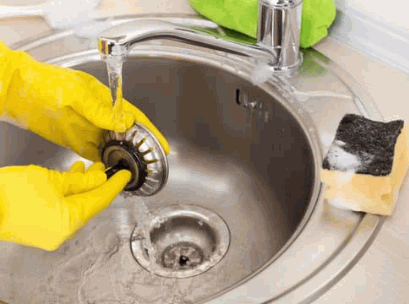
What Are The Common Causes Of Clogged Drains?
Common causes of blocked drains include the accumulation of grease and oil, buildup of hair and soap scum, intrusion of tree roots, and foreign objects blocking the drainage paths.
Accumulation Of Grease And Oil
The accumulation of grease and oil in your drainage system can lead to severe blockages, often costing between £50 to £60 to clean, or even as low as £3 for minor DIY fixes.
Grease and oil build-up occurs gradually as residue from cooking, washing up, and personal hygiene activities. Over time, this accumulation solidifies into stubborn blockages that obstruct the smooth flow of water through your pipes.
When left untreated, these blockages can significantly impact the functionality of your drains, leading to slow drainage, foul odours, and even potential blockages that can cause water damage. This can be both inconvenient and costly to address, especially if it necessitates professional intervention.
Professional drain cleaning services typically involve specialised techniques and equipment for the thorough removal of grease and oil build-up. The cost of such services may vary depending on the severity of the blockage and the specific methods used. On the other hand, opting for DIY solutions like homemade drain cleaners or basic tools can be a more economical choice for minor issues, costing considerably less than professional services.
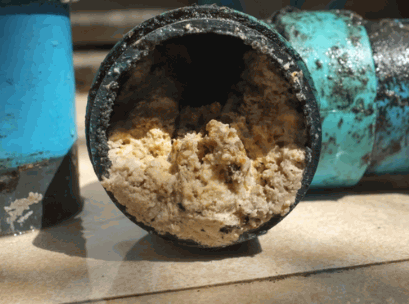
The Buildup Of Hair And Soap Scum
Hair and soap scum can gradually accumulate in drains, often necessitating the services of a plumber, with costs ranging between £20 to £50 depending on the severity.
Over time, as hair and soap scum build up in drains, they can lead to slow drainage, foul odours, and even complete blockages. These issues not only inconvenience daily routines but can also pose health risks due to stagnant water. Professional plumbing services utilise specialised tools and techniques to effectively remove these stubborn clogs, restoring proper drainage and preventing future buildup.
By employing plumbers skilled in drain cleaning, homeowners can avoid the hassle of DIY attempts that may only provide temporary relief. Professional services can address underlying issues that contribute to buildup, ensuring long-term solutions for optimal brain function.
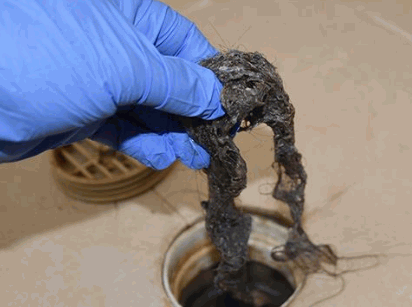
Tree Roots Intrusion
Tree root intrusion is a major cause of drainage blockages, often requiring extensive work by a plumber, with costs typically ranging from £500 to £800.
When tree roots penetrate drainage systems, they can cause significant damage by blocking the pipes and causing backups. The root intrusion can lead to cracks, leaks, and even complete collapse of the drainage system if left untreated.
Professional removal of tree roots from drainage systems involves using specialised equipment to cut out and clear the roots without causing further damage. This process can be time-consuming and labour-intensive, depending on the severity of the intrusion. The cost of professional removal varies based on factors such as the extent of the root penetration, the accessibility of the pipes, and the complexity of the job.
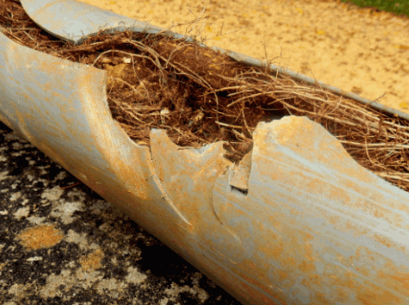
Foreign Objects Blocking Drainage
Foreign objects such as toys, sanitary products, and other debris can cause significant blockages, often costing between £60 to £70 to remove, and sometimes as much as £100.
These blockages can be caused by a variety of items, from children’s toys that accidentally find their way into the toilet to feminine hygiene products improperly disposed of in sinks or drains. The debris can accumulate over time, eventually leading to clogs that disrupt the normal flow of wastewater.
Professionals are usually tasked with the removal process, which can involve specialised tools and equipment to extract the objects causing the blockages. The cost of this service typically depends on the complexity of the blockage and the time required to clear it efficiently.
What Are The Signs Of A Clogged Drain?
Identifying the signs of a blocked drain, such as slow-draining water, foul odours, gurgling sounds, and backed-up water, can help address issues before they escalate, potentially saving costs that could range from £125 to £300.
Slow Draining Water
Slow-draining water is often the first sign of a blockage, which may require professional help from a plumber, costing around £100.
One common cause of slow-draining water in sinks or showers is a build-up of hair, soap scum, and debris in the pipes over time. DIY solutions like using a plunger or a drain snake can often help dislodge minor blockages before they escalate. Pouring boiling water mixed with vinegar down the plughole can also break down organic matter causing the obstruction. If these methods fail and the problem persists, it might be time to call in a professional plumber to inspect and deal with the root cause effectively.
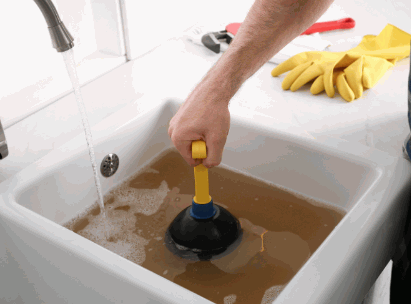
Foul Odours
Foul odours emanating from your drains can indicate a serious blockage, with professional cleaning costs in Illinois ranging from £70 to £175.
These unpleasant smells often stem from a variety of sources, including rotting food particles, grease build-up, and even mould growth within the pipes. In regions like Illinois, where the weather can be humid, these odours tend to become more concentrated and bothersome.
It is essential to address these blockages promptly not only for the sake of your comfort but also to prevent potential health hazards and further damage to your plumbing system. The costs of removing such blockages may vary based on the severity and complexity of the issue, making it crucial to seek professional assistance when dealing with persistent foul odours in your drains.
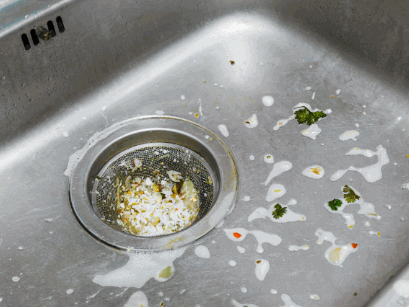
Gurgling Sounds
Gurgling sounds in the plumbing system are often a sign of air trapped by a blockage, with repair costs in California typically ranging between £80 to £145.
These gurgling noises usually occur when there is a partial blockage in the pipes, causing air to become trapped. Such obstructions can lead to slow drainage, blockages, or even burst pipes if not dealt with promptly.
The usual causes of these problems include debris accumulation, tree roots invading the sewer lines, or incorrect installation. If ignored, these issues can worsen, resulting in expensive repairs that may exceed the original estimate.
Therefore, it is essential to seek professional help to identify the root cause of the gurgling sounds and prevent further harm to the plumbing system.
Backed Up Water
Backed-up water is a serious indication of a blocked drain, often requiring extensive repairs that can cost between £360 and £500 to £800.
When drains become blocked, debris like hair, grease, or foreign objects obstruct the flow of water, leading to blockages. This stagnant water not only creates unpleasant odours and inconvenience but can also damage the surrounding areas, causing mould growth and structural issues over time. Repairing a blocked drain involves identifying the blockage location, clearing it through snaking or hydrojetting, and sometimes replacing damaged pipes. Costs vary based on the severity of the blockage and any resulting damage that needs addressing.
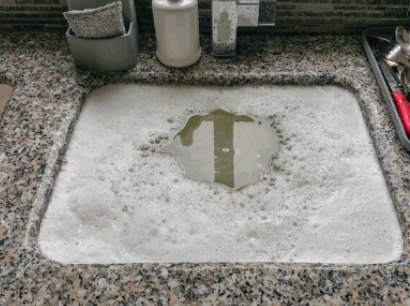
How Is Drain Cleaning Performed?
Drain cleaning is performed using various methods such as chemical drain cleaners, hydrojetting, and plumbing snakes, with costs ranging from £165 to £250, and sometimes up to £225 for advanced techniques.
Chemical Drain Cleaners
Chemical drain cleaners are a common solution for minor blockages, usually costing between £60 to £70, and are regulated for safety by the US Department of Labor.
There are two main types of chemical drain cleaners: acidic and alkaline. Acidic drain cleaners are often formulated with sulphuric acid or hydrochloric acid and are effective for dissolving organic materials like hair and soap scum. On the other hand, alkaline drain cleaners, which contain ingredients like lye or potash, are more suitable for breaking down grease and food particles.
It is important to follow safe usage practices when using chemical drain cleaners to avoid skin irritation or damage. Always wear protective gear such as gloves and goggles, and never mix different types of cleaners as this can lead to hazardous chemical reactions.
The US Department of Labor plays a crucial role in regulating the safety standards of these products to protect consumers and workers from potential harm. By ensuring that manufacturers comply with strict guidelines, the Department helps maintain the integrity and effectiveness of chemical drain cleaners in the market.
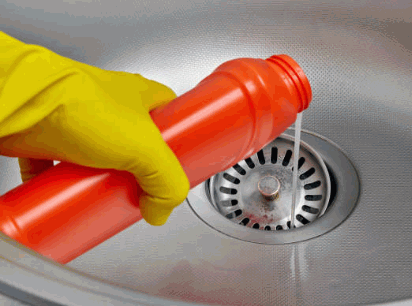
Hydro Jetting
Hydro jetting is an effective method for clearing severe blockages, with costs ranging from £195 to £950, and in some cases up to £2,000 for extensive work.
During the hydrojetting process, a high-pressure stream of water is blasted into the pipes, forcefully removing debris, grease buildup, tree roots, and other obstructions. This thorough cleaning not only clears the current clogs but also helps prevent future blockages, making it a long-term solution for maintaining clean and functional pipelines.
The high-pressure water used in hydrojetting can reach up to 4000 psi, ensuring a powerful and effective cleaning process that can break through even the most stubborn clogs. Hydrojetting is environmentally friendly since it does not involve the use of harmful chemicals.
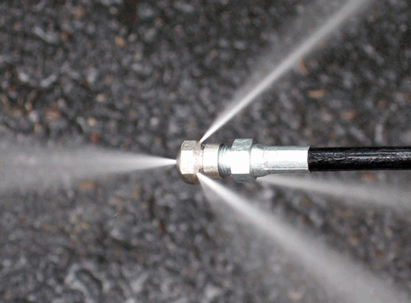
Plumbing Snake
Using a plumbing snake is a traditional and effective method for clearing blockages, with service costs typically ranging from £70 to £175, and sometimes around £125.
When dealing with a stubborn blockage, a plumbing snake can be the go-to solution for many households. The process involves inserting the snake into the drain or pipe until it reaches the obstruction, and then manoeuvring it to break apart or pull out the debris.
This method is particularly useful for dealing with tough blockages that cannot be easily dislodged with a plunger. It offers a comprehensive way of tackling blockages without the need for harsh chemicals, making it environmentally friendly as well.
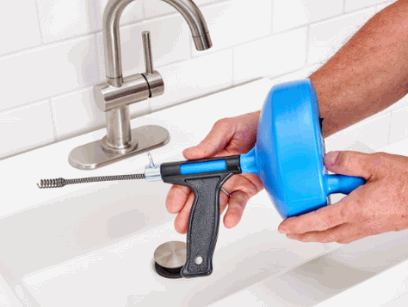
How Much Does Drain Cleaning Cost?
The cost of drain cleaning can vary significantly based on multiple factors, with professional services typically costing between £150 and £300.
Factors That Affect the Cost
Several factors can affect the cost of drain cleaning, including the severity of the blockage, the method used, and the rates charged by the plumber, which can range from £100 to £150 to £200.
The complexity of the blockage is a significant determinant in the pricing structure. A simple blockage near the surface may be resolved quickly, while a more intricate blockage deeper in the pipes might require specialised equipment and expertise.
The type of service required can heavily impact the overall cost. Routine maintenance or basic unclogging may be less costly compared to more extensive repairs or hydro jetting services, which involve high-powered water blasts to clear stubborn obstructions.
Regional variations play a crucial role as well. Plumbers in urban areas or high-cost regions might charge higher rates due to increased demand or higher operating expenses, whereas rural areas may have more competitive pricing based on market dynamics.
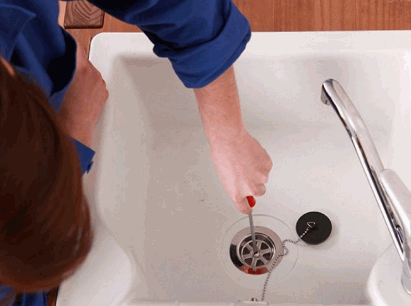
Average Cost Of Drain Cleaning Services
On average, professional drain cleaning services cost around £125 to £225, with more extensive services reaching up to £300.
These costs can vary depending on the type of services required. For routine unblocking of kitchen or bathroom drains, the standard cost falls within the lower end of the range, typically around £125 to £150. For more complex issues such as tree root infiltration or deep blockages requiring hydro-jetting, the price can easily climb to £250 or more. Specialist services like video camera inspections or drain line replacements are at the higher end of the scale, often exceeding £300.
DIY Drain Cleaning Costs
DIY drain cleaning can be a cost-effective option, with expenses typically ranging from £70 to £175, or as low as £80 to £145 for basic tools and chemicals.
It’s essential to consider that these costs can increase based on the complexity of the blockage and the tools required. In some cases, you may need to invest in specialised equipment or stronger chemicals, pushing the expenses toward the higher end of the spectrum.
On the other hand, opting for professional drain cleaning services may have a higher upfront cost, typically ranging from £100 to £300, but it can provide a more thorough and efficient solution. Professionals have the experience and tools to tackle even the toughest blockages and ensure long-term results, potentially saving you money in the long term.

